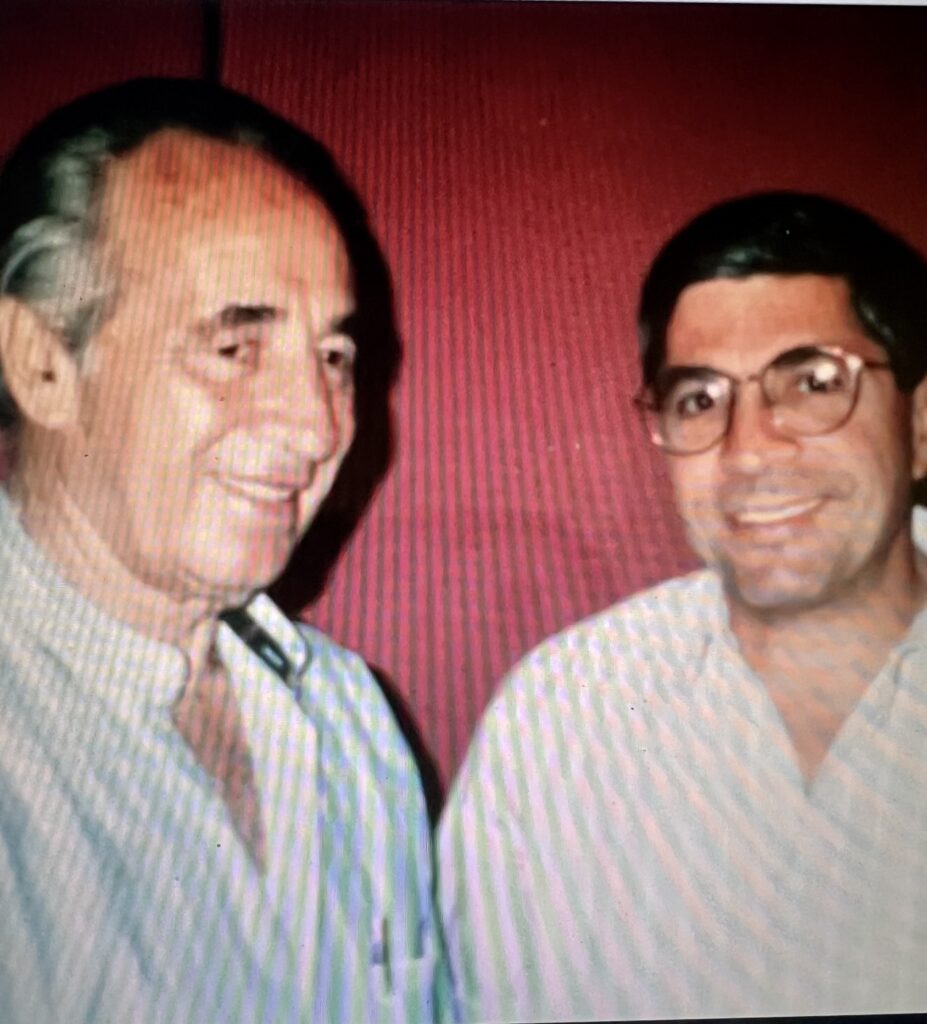
(Illustration by Art Spiegelman, Maus.)
In the frontispiece to Volume II of Art Spiegelman’s Pulitizer Prize winning graphic novel, Maus, there is a quote from a 1930’s newspaper article from Pomerania, Germany:
“Mickey Mouse is the most miserable ideal ever revealed…Healthy emotions tell every independent young man and every honorable youth that the filth-covered vermin, the greatest bacteria carrier in the animal kingdom, cannot be the ideal type of animal…Away with the Jewish brutalization of the people! Down with Mickey Mouse! Wear the Swastika Cross!”
A contributing editor and artist for The New Yorker, Spiegelman’s drawings and prints have been exhibited in museums around the world.
In frame after frame of his nearly 300-page monumental masterpiece Maus, Spiegelman carefully shows how years of calculated dehumanization of referring to Jews as “Vermin”, led to the massacre of millions of Jews, the disabled, members of the LGBTQ community, the press, liberals and humanists—whom Hitler wrote about extensively in “Mein Kampf”—as just an extension of world Jewry.
Spielgelman, who still lives in NYC with his family, speaks even more graphically when discussing how methodically Nazi propagandists carried out their decades long campaign of dehumanization as a predicate to mass extermination:
“ The most shockingly relevant anti-Semitic work I found was “ The Eternal Jew,” a 1940 German “documentary” that portrayed Jews in a ghetto swarming in tight quarters, bearded caftaned creatures, and then a cut to Jews as mice—or rather rats—swarming in a sewer, with a title card that said “Jews are the rats” or the “vermin of mankind.” This made it clear to me that this dehumanization was at the very heart of the killing project. In fact, Zyklon B, the gas used in Auschwitz and elsewhere as the killing agent, was a pesticide manufactured to kill vermin—like fleas and roaches.”
With his flimsy, toupe-like veil of not mentioning us Jews specifically in his definition of “Vermin”—delivered in a New Hampshire Veterans Day speech supposedly honoring thousands of American Veterans who sacrificed their lives fighting Hitler, and Fascism—Trump targeted many groups long tagged by tyrants like Hitler, Mussolini and Joseph McCarthy as “fellow travelers” of Jews: “radical leftists,” “sinister, dangerous forces from within,” “communists,” “Marxists” and, “thugs.”
Mein Kampf, Hitler’s deranged diatribe against the Jews and “liberal” society, written nearly 100 years ago from his cell in Landsberg Prison, explodes with the same kind of vitriol that Trump and his MAGA-Nazis use against many of their imagined contemporary enemies. Sounding much like Trump, Hitler rants:
“…all at once the Jew also becomes liberal and begins to rave about the progress of mankind…Slowly, he makes himself the spokesman for a new era…To strengthen his political position he tries to tear down the racial and civil barriers…To this end, he fights with all the tenacity innate to the Jew, for religious tolerance; …another weapon in service to the Jews is the Press; the Jew talks of ‘enlightenment,’ ‘progress’, ‘freedom,’ ‘humanity’…and of the equality of all men without regard to race and color. He (The Jew) poisons the blood of others, but preserves his own.” (From, section of Mein Kampf entitled “Development of Jewry”)
Michael Tomasky, writing in The New Republic on November 12, 2023, is right to point out the difference in Trump’s Veterans Day version of “Mein Kampf,” :
“Trump, let us clarify, does not mention the Jews. He means SOME Jews—the ones who aren’t for him, which, come to think of it, is most (American) Jews.”
American Jews, considerably to the left of our Israeli counterparts, have repeatedly rejected Trump, seeing right through his previously coded discriminatory, racist and totalitarian comments and tactics. In 2016, Hillary Clinton won 71% of the Jewish vote, while receiving only 37 % of the overall white vote; Biden did even better among American Jewish voters in 2020, receiving 77% of the Jewish vote. Polls taken earlier this summer positing a Biden/Trump match-up for 2024, show Biden with a massive 50 point lead among Jewish voters. And that was before the Israel/Hamas war, in which Biden’s strong response has pushed his numbers among Jews even higher.
Perhaps most telling—and I’m sure Trump’s own Joseph Goebbels, Stephen Miller, has read this—at the end of Hitler’s maniacal Mein Kampf section entitled “Development of Jewry,” Hitler reveals what we Jews are really after:
“His ultimate goal in this stage is the rule of ‘democracy,” or as he understands it: the rule of parliamentarianism.”
Among us Jews and our fellow travelers, we understand it as the “Rule of Law.”






